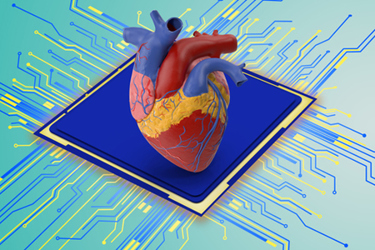From Chips To Genes: The New Era Of Animal Models Transforming Drug Testing And Research
By Sabyasachi Ghosh, Future Market Insights

Animal models have long been instrumental in advancing biomedical research and facilitating drug development. The U.S. animal model market is at the forefront of the artificial intelligence-based research trend surge to elevate the understanding of human physiology, testing potential therapies, and identifying disease mechanisms.
One particularly ground-breaking trend in the U.S. animal model industry is the emergence of organoid intelligence. It stands out among the dynamic trends reshaping this sector as a paradigm-shifting innovation that has the potential to transform our understanding of human biology and customized medicine completely. Beyond organoid intelligence, however, several recent advances are igniting interest and tweaking the U.S. animal model industry, expanding the spectrum of possibilities for research methodology.
This article examines the significance of these five innovative advancements in the U.S. and key considerations for those working in the field. Researchers and stakeholders can take advantage of these trends' revolutionary potential to elevate biomedical research to new heights by embracing them responsibly and proactively tackling their obstacles.
5. Genome Editing
CRISPR-Cas9 and other genome editing technologies are transforming the development and use of animal models. Animal embryos with precise genetic alterations produce models with specific mutations that closely resemble human diseases. This expedites the production of disease-specific animal models, improving the effectiveness and precision of preclinical research for developing new drugs.
According to a February 2022 article in the journal Molecular Neurobiology, CRISPR/Cas9-based genome editing is quickly emerging as one of the most promising methods for treating cancers, cardiovascular diseases, and other human genetic disorders. This has increased the use of animal genetic models to research and treat human genetic diseases, particularly those involving point mutations.
Consideration to keep in mind: Regardless of improvements in accuracy, there are still concerns about how well these animal models mimic the complexities of human diseases. Animal and human biological differences could hinder the applicability of findings. Genetic changes made to construct specific disease models could result in unforeseen impacts on other biological systems. Therefore, this could affect the model's dependability for research purposes.
4. Integration of Multi-omics Approaches
Integrative multi-omics approaches are radically altering the animal model industry in the U.S. Researchers acquire comprehensive insights into intricate biological processes by combining genomes, transcriptomics, proteomics, and metabolomics data analysis. The combining of omics data allows for the discovery of possible biomarkers correlated with specific medical conditions. The thorough understanding improves the identification of disease routes, the identification of biomarkers, and the finding of therapeutic targets, increasing the predictive value of animal models in translational research.
Considerations to keep in mind: Considering omics technologies could leverage vast amounts of genetic and molecular data, ethical considerations about privacy, data sharing, and informed permission need to be addressed. Also, integrative multi-omics investigations sometimes need substantial resources, both financially and in terms of specialist skills. This has the potential to limit access for smaller research organizations.
3. Micro-physiological Systems For Drug Testing
In the U.S. animal model market, the use of micro-physiological systems (MPS), or "organ-on-a-chip" technologies, is rising. These platforms offer a more precise and pertinent model for drug testing by simulating the physiological operations of certain human organs using human cells. Researchers can study multiple organs at once, revealing details about how the various organs interact with one another and how drugs affect the entire body. Adopting MPS can lessen the need for animal testing, representing an ethical scientific breakthrough. Organ-on-a-chip models can be customized with patient-specific cells, offering the potential for personalized medicine approaches.
Consideration to keep in mind: Organ-on-a-chip technologies are still in their early stages. Hence, issues may arise regarding their validation and uniformity across different laboratories and research environments. Organ-on-a-chip models are more relevant than animal models. Questions persist concerning how precisely these platforms replicate the complexity of complete organs or multi-organ interactions in the human body.
2. In Silico Modeling And Simulation
Also known as computational modeling, in silico modeling is a potent method of transforming animal model research. Similar to conventional animal models, simulations also mimic the course of diseases and the interactions between drugs. Using in silico modeling allows for the development of drugs in a data-driven and cost-effective manner by eliminating the need for significant in vivo testing.
Ethical concerns surrounding animal testing have long been a topic of debate across the United States. In silico modeling offers a more humane alternative by significantly decreasing the reliance on animal models. This leads to better treatment options without causing unnecessary harm to animals.
Considerations to keep in mind: In silico modeling requires specialized computational skills and resources, which limits access for researchers and institutions with limited expertise or funding. Also, it is difficult to integrate silico modeling with data from experiments from laboratories and clinical trials.
1. Organoid Intelligence: The Next Frontier
Organoid intelligence is the combination of three-dimensional cell cultures called organoids that imitate the morphology and function of human organs with AI technology. The real-time monitoring, analysis, and manipulation of organoids made possible by this union will advance the study of diseases and the development of new drugs to whole new levels.
Organoid intelligence possesses enormous potential in advancing customized treatment and medical research. Incorporating AI enables real-time monitoring, analysis, and modification of organoids, resulting in a deeper comprehension of organ functioning and disease processes. By hastening the identification of novel medicines and streamlining preclinical testing, this breakthrough promises to disrupt the drug discovery process.
Considerations to keep in mind: Developing and managing intelligent biological systems raises ethical questions with the fusion of AI and organoid models. The possibility of developing sophisticated, self-aware organoids prompts debate on where the line between artificial and human life should be drawn and should be done with meticulous consideration. Numerous concerns exist regarding how this technology should be used responsibly to prevent unintended repercussions or unforeseen challenges.
Pay close attention to how an ethical and regulatory framework evolves as this technology advances and gains popularity, because it is imperative to utilize organoid intelligence responsibly and fully. Early consideration will encourage proactive strategies between stakeholders, including researchers, decision-makers, and the general public, ensuring that the creation and use of this technology are consistent with moral principles and social norms. Best practices in this evolving area include:
- Interdisciplinary Collaboration: Organoid intelligence ethics are a complicated and nuanced topic. Developing comprehensive guidelines that successfully navigate ethical problems requires cooperation between researchers, bioethicists, legal professionals, and legislators.
- Community Engagement and Transparency: Include the general public in debates about the creation and application of organoid intelligence. Transparent communication will increase public trust, and considering many viewpoints will result in stronger ethical standards.
- International Cooperation: International collaboration is essential for creating unified regulatory standards as organoid intelligence crosses geographical boundaries. Working with other biopharmaceutical companies can help prevent inequities and provide a uniform worldwide strategy.
- Regular Ethical Review: Organoid intelligence researchers should perform routine ethical evaluations to weigh the ramifications of their work. The ongoing assessments will allow revisions to ethical standards as new issues and challenges occur.
A Brief Glance at Key Players in the Space & Recent Developments
Key players include:
- Charles River Laboratories International Inc.
- Taconic Biosciences Inc.
- The Jackson Laboratory (JAX)
- Envigo
- Crown Bioscience Inc.
- Horizon Discovery Group Plc.
- Transposagen Biopharmaceuticals Inc.
- GenOway S.A.
- InVivos Pte. Ltd.
- Synthego Corporation
Two significant recent developments are:
- Enlivex Therapeutics Ltd. published new preclinical results in a mouse mesothelioma model in September 2022 that demonstrated substantial and statistically significant survival improvement when Allocetra is paired with the chemotherapy drug Cisplatin.
- Hera BioLabs, a cutting-edge service and technology provider with revolutionary genetic engineering products, collaborated with Charles River Laboratories in March 2022 to distribute Hera's SRGTM rat (OncoRat) under a global license agreement. The SRG rat is the first highly immunosuppressed rat model approved for use in xenograft studies for oncology and infectious disease research. Charles River will breed, distribute, sell, and advertise the SRG rat directly to the preclinical research community under the terms of this new cooperative partnership, while Hera will concentrate on offering services utilizing the model.
Innovations In Motion Will Shape The Path Of The Animal Model Use In The U.S.
With the rise of numerous trends affecting biomedical research and medication development, the U.S. animal model market is currently experiencing a transitional period. Organoid intelligence is the front-runner, opening new avenues for individualized healthcare and quickening scientific progress. Along with organoid intelligence, the sector is seeing tremendous growth and advancement due to micro-physiological systems, genome editing, multi-omics techniques, in silico modeling, and emerging new trends.
Researchers and stakeholders must stay informed about these emerging trends, recognizing their potential impact on the animal model market and biomedical research. Developing novel therapeutics to enhance human health and well-being will be made possible by properly embracing these innovations while giving ethical and regulatory considerations adequate attention.
About The Author:
 Sabyasachi Ghosh is associate vice president of healthcare, medical devices, and pharmaceuticals at Future Market Insights. He has more than 12 years of experience in the industry and has been a researcher since the start of his career. His core expertise is in market entry and expansion strategy, feasibility studies, competitive intelligence, and strategic transformation. He holds a B.Sc. in microbiology. You can connect with him on LinkedIn.
Sabyasachi Ghosh is associate vice president of healthcare, medical devices, and pharmaceuticals at Future Market Insights. He has more than 12 years of experience in the industry and has been a researcher since the start of his career. His core expertise is in market entry and expansion strategy, feasibility studies, competitive intelligence, and strategic transformation. He holds a B.Sc. in microbiology. You can connect with him on LinkedIn.
